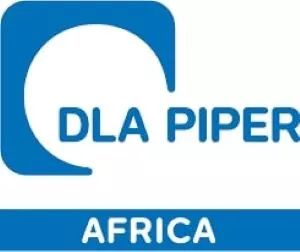Copyright Ownership and Licensing
What is protected by copyright in Nigeria?
Literary works, musical works, artistic works, cinematograph films, sound recordings and broadcasts1.
As a copyright owner, what rights are conferred on me?
This is largely subject to the class of copyright work involved. Generally, copyright owners enjoy the exclusive right to reproduce, commercially distribute copies of the work, publish the work and make an adaptation of the work.
Who owns the copyright in photographs?
- Unless there is a contract to the contrary, the photographer is automatically regarded as the copyright owner.
- The copyright owner has exclusive rights to that photograph.
- The exclusive rights are reproduction, distribution, publication, inclusion in a cinematograph film, and making an adaptation of the photograph.
What do I do if someone uses my works/content without permission?
Save for recognized exceptions under the law (e.g. fair dealing for research and private use, parody, pastiche or caricature, use for educational purposes in an educational institution etc.), the use of any copyright work without the author's permission constitutes an infringement of the author's copyright. Where a suspected infringement has occurred, it is always best that you seek legal advice. Contacting the suspected infringe is also an option. If you decide to take legal action, there are a number of remedies that you can seek from the court e.g. an injunction, award of damages etc.
As an artiste, why should I consider licensing my music?
Licensing ensures that you benefit from the exclusive rights granted to you under the law and it guarantees compensation for specific uses of your work. Licensing adds to ownership and helps to monitor/track all legitimate and illegal uses of your songs.
What key terms should I look out for in a music licensing agreement?
This is largely dependent on the type of music license that is being considered. Some of the types of licensing include:
- synchronization licenses for TV, vigeo games, mobile devices, film and video;
- performance licenses for live performances;
- mechanical licenses for CDs and digital downloads;
- website licenses for background music and ringtones;
- sample clearances for commercials/product placements; and
- print licenses for books/magazines/catalogs; etc.
The following clauses are critical to music licensing deals:
- term/duration of license;
- remuneration;
- exclusivity;
- nature of rights granted;
- consideration;
- termination;
- reversal of rights;
- warranties/representation; and
- dispute resolution mechanism.
How should a recording studio approach matters of copyright?
Liaising with a lawyer versed in these matters is critical. The lawyer will advise on the issues arising as well as the relevant and requisite contracts which could include, recording, production and distribution. Key terms on financing, production, exploitation, ownership, copyright, infringement and disputes will be provided for.
It seems Nigerian may soon have a new Copyright Act. What are some of the key takeaways?
As of date of this publication2, Nigeria does not have a new copyright law. The bill is awaiting presidential assent after which it will become law. Key takeaways of the version available to the public as of October 2022 include:
- The term cinematograph film is replaced with "audiovisual works"
- Exclusive rights of the copyright owner of audiovisual works have been significantly expanded giving owners more opportunity to fully exploit their works.
- Exclusive rights of copyright owners in broadcasts cover the right to rebroadcast, communicate to the public, make available to the public, reproduction and adaptation of a fixation of the broadcast.
Footnotes
1. Copyright Act, Cap. C28, Laws of the Federation of Nigeria 2004
2. October 2022
The content of this article is intended to provide a general guide to the subject matter. Specialist advice should be sought about your specific circumstances.


